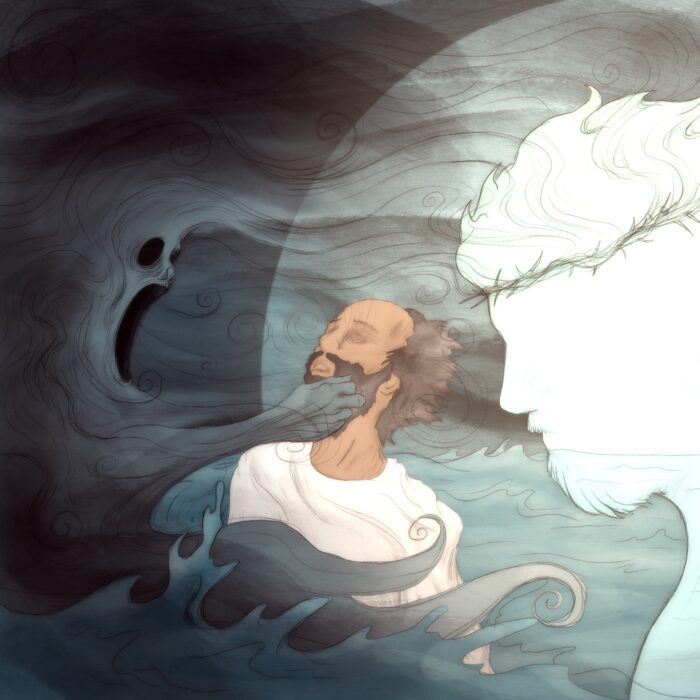Peter — “…and going out, he wept bitterly.” Matt.26:75
Judas — “…and going out, he hung himself.” Matt 27:5
Consider the paralleled responses of these two men who both betrayed Jesus. What’s the difference?
We aren’t given an in-depth look into either man’s mind or heart and so it is difficult to answer “why” in an specific way, however, I think the narrative is clear enough to show that, Judas—never believing Jesus in the first place—perceives himself to be alone in his sin and gives way to despair, while Peter continues to hope beyond hope in Jesus and so in the mercy of the Father. Just as Moses in Exodus 34:8 casts himself and the people through the veil of God’s wrath and onto the heart of His’s steadfast love and faithfulness, so too Peter seems to cast Himself through the condemning words of Christ’s warning in Matt. 10:33 and onto the heart of His fathomless forgiveness (18:22, etc).
In the face of his damnable sin—and even in the face of what seems to be a death sentence without escape—Peter humbles himself under the mighty hand of God, casting his anxieties on Him, knowing that He cares for him (1 Pt 5:6-7). In this way, Peter’s sin is borne in the body of Christ as He hangs on the tree in Peter’s place (1 Pt.2:24) and, after he had suffered a little while, the God of all grace did Himself restore, confirm, and strengthen him (1Pt. 5:10) through union with the risen Lord.
Conversely, in the face of his sin, Judas despairs…..he forgets (or never believed) that Jesus forgives sin, that his forgiveness is limitless for any and all who repent, that all who sin against the Son of Man will be forgiven, that if the unrighteous forsake their way they will find compassion—he forgets, or ignores, or dismisses, or disbelieves these things, and so he is left to his own devices, bearing his own sin in himself on his own tree.
Sin, failure, shame, etc. WILL enter our lives, and under their weight, may we fall into the ever-open arms of the slain and risen Jesus—wherein is boundless forgiveness, rather than into the ever-open mouth of a despairing refusal to receive the mercy that is offered.




